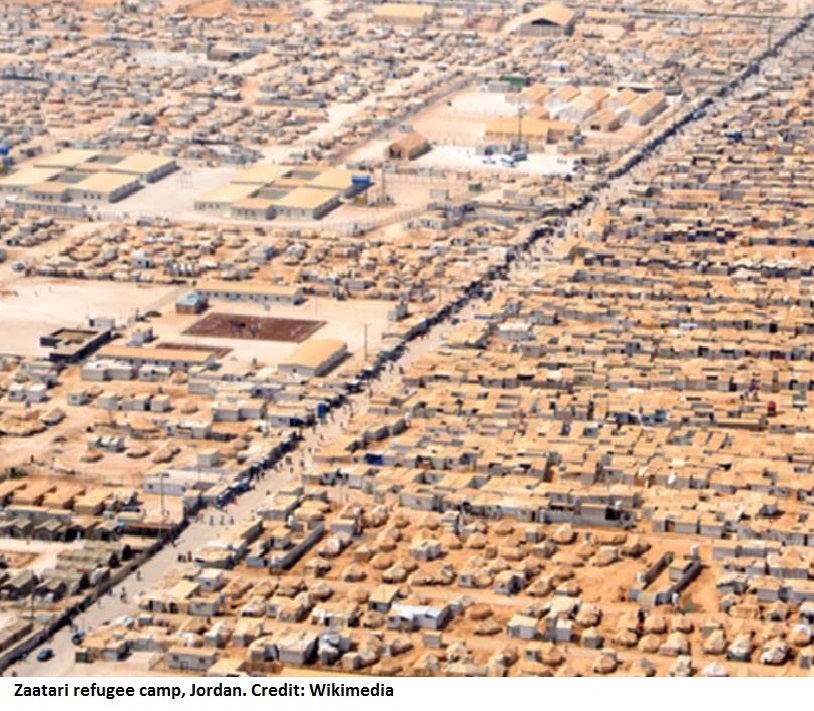Climate change, natural resources and conflicts in Arab countries

Lebanon and Jordan are home to an exceptionally large number of refugees. Together, they host around 1.7 million Syrian refugees, in addition to a large number of Palestinian and Iraqi refugees already residing in the two countries before the Syrian crisis. According to official estimates, registered refugees presently make up around one third of the respective populations of the two countries. As a result, nutrition levels have sharply deteriorated over the past 5 years, and the Food and Agriculture Organization highlights the prevalence of severe food insecurity in the region. The UN agency’s regional representative, Abdessalam Ould Ahmed, has said: "A peaceful and stable environment is an absolute precondition for farmers to respond to the challenges of water scarcity and climate change".
Water resources are dwindling and Arab countries are already in the midst of a water crisis. The links between water scarcity, climate change and conflict in the region were debated at the Future Force Conference, hosted in February at the Hague, Holland, by the Dutch Ministry of Defence. In his keynote speech, Najib Saab, secretary-general of Arab Forum for Environment & Development, stressed that proper management of the water-energy-food nexus is urgent to enhance food production in the region. A shift towards a green economy and renewable energy should be supported to help create jobs and diversify the economic base, as well as revamping the education system and supporting research and innovation. However, Najib Saab stressed “ all this won’t be sustainable if countries do not foster the integration of human rights into the development agenda, incorporating the principles of genuine public participation, accountability, transparency and non-discrimination”.
Some of the less recognized aspects of climate change are its social consequences. Environmental factors have long had an impact on global migration flows, as people have historically left places with harsh or deteriorating conditions. The prolonged drought period besetting the eastern Mediterranean region over the past two decades is likely the worst drought of the past nine centuries. The unusual aridity, combined with unique weather patterns are thought to be the main causes of extreme dust storms recently affecting the Middle East. The massive exodus of farmers, herders, and agriculturally dependent rural families from the Syrian countryside to the cities is considered an important factor of social and political unrest, heightening the potential for conflict, violence and ultimately for migration.
Resources: Food and Agriculture Organisation (FAO) : Near East and North Africa Regional Overview of Food Insecurity | International Organisation for Migration (IOM) : Middle East and North Africa Regional Strategy 2017–2020



